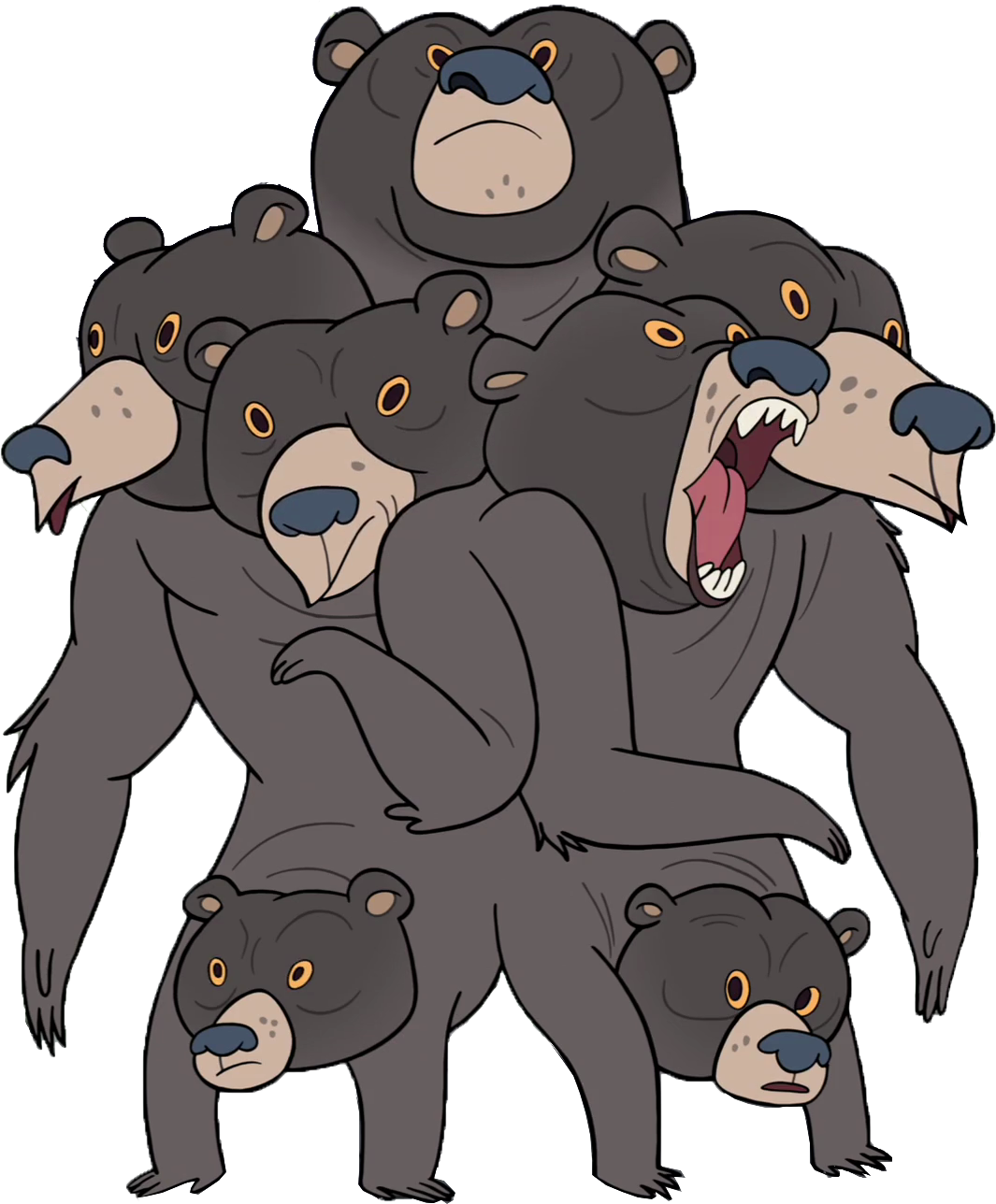- cross-posted to:
- [email protected]
- cross-posted to:
- [email protected]
cross-posted from: https://lemmit.online/post/6433568
This is an automated archive made by the Lemmit Bot.
The original was posted on /r/todayilearned by /u/Farry_Bite on 2025-07-28 13:27:49+00:00.
Don’t forget about the Western Lowland Gorilla 🦍 who’s scientific name is GORILLA GORILLA GORILLA https://en.m.wikipedia.org/wiki/Western_lowland_gorilla
Beir bere bey’re.
Relevant XKCD: https://xkcd.com/2381/

In Czech we say “the honey eater”, for the same reason.
I thought we knew this. I remember being told Arthur wasn’t King Arthur’s real name, but an epithet like Lionheart, only for bear.
And the north star, which is part of the big bear (plough) constellation is called Arcturus.
It’s extra funny that “bear bear bear” would be considered the beariest bear, because “bear” doesn’t even mean bear.
Many languages had a taboo against saying the word bear - “bear” comes from the word for “brown”, because people used to say “the brown one” instead. Some languages seem to have used “sweetpaw” or something similar.
This is akin to the modern toilet-taboo, where except for terms like “shitter/pisser” all the words are euphemisms. Even “toilet” comes from towel.
Ah yes, the black brown one
In the Indo-European family it’s mostly the Balto-Slavic and Germanic branches that avoided the original word, *h₂ŕ̥tḱos - the first one replaced it with “honey-eater”, the second one as you said with “the brown one” (IIRC it would be *bʰérh₃os or similar)
If *h₂ŕ̥tḱos survived in Germanic it would’ve become **urght [ɜːt] in English, and probably **Urcht [uɐ̯χt] in German. Not sure in the Slavic languages, but Lithuanian (Baltic) does keep irštvà for “bear den”, so the bear itself would be probably **irštas.
I believe some uralic languages do it too. I’ve heard some attempts to link it to a circumpolar bear cult that there’s still scattered evidence for from groups as far away as the ainu, but I don’t know how solid that is.
The case of Uralic vs. PBS + PGerm can be explained by interaction, but the Ainu doing the same is interesting.
I’ve heard that factoid numerous times over the years, but I never saw a single source for it. I’d love to read more about this.
https://en.m.wikipedia.org/wiki/Bear.
Etymology section
The multi-bear!

That’s Gravity Falls, right?
Indeed it is!
Black bears: they are bears, yes, and could kill me in a single swipe if they wanted to. Thankfully (and hilariously) they are so timid. I (a not intimidating person) raise my voice and say “hey, go!” And they run.
Grizzly bears, I used to think were scary. And they are. What I am getting at is that they are more territorial than human-eaty. Give them space. Give them as much space as you can. They will growl and grunt but they will not really want to bother with you.
Polar bears are nightmares. The blood on white fur doesn’t help their image. They will kill anything. They move so quick and quietly.
How did it go again
If it’s black, fight back
If it’s brown, lie down
If it’s white, good night
If it’s black, you’re a snack.
If it’s brown, you’re going to Stomach Town.
If it’s white, uhh, you’re a Turkish delight.
Basically, stay away from all bears, if possible.
Black bears woll give you a bluff charge before running away. Of course, this bluff charge is super effective because like hell am i gonna try to fight a bear
One of my biggest fears of riding MTB in grizzly country is spooking one while out riding.
I’ve seen videos of people that have been chased and I don’t know if I’d survive.
Remember to go downhill, not up, if it comes for you.
The Eurasian brown bear sleeps in three beds of different firmness all at once. Then wakes up and eats 3 bowls of porridge without giving a shit what temperature they are.
deleted by creator
Also:
Gorilla gorilla gorilla
Also: Diceros bicornis
“two-horned two-horner”
What’s the twinkiest twink?
How do you say twink in ancient Greek and Latin?
There’s no way those languages don’t have a word for twink, right?
The people naming it just wanted us to check out that dope ass bear.
It’s also probably the first bear to be called bear, makes it even bearer.
I prefer Plains bison for a crazy tautonym. Its genus, species, and subspecies are all the same word.
Or Extra Extra Extra for extra fun.
What language is “arctos” from?
Interestingly, Latin ursus and Greek arktos are cognates. Both come from the Proto-Indo-European word for “bear”, h₂ŕ̥tḱos.
This word is interesting in that it contains an example of what’s called (for various reasons) a “thorn cluster”. Certain words in PIE containing the cluster “tk”, for whatever reason, underwent metathesis (switching places) in most of the IE daughter languages. This is why the PIE word has a “tk”, but the Greek word has a “kt”.
This is one of the many reasons for thinking that the Anatolian branch of Indo-European (Hittite, Luvian, etc.) branched off from PIE first - the Hittite word for “bear”, ḫar-tág-ga-aš, still shows the PIE order of “t” and “k” (the Hittite double-g was probably something similar to a “k” in this environment, and what appears to be an intervening “a” is a shortcoming of Hittite’s cuneiform writing system), meaning that this family of languages branched off before the rest of the family underwent this shared change of “tk” to “kt”.
Another fun fact about the “bear” word is that all of Germanic has completely lost it. Instead, in prehistoric times they innovated a formation meaning “the brown one”, which is still reflected in Modern English bear.
This is thought to have been due to taboo avoidance. When you’re hunting the bear (or maybe when the bear is hunting you), you don’t want to actually say the true name of the animal, because that would either scare it away or bring it to you, whichever is worse under the circumstances. So, you instead call it “the brown one” so as not to draw its attention, and so, over time, the true word for “bear” in Germanic was completely lost.
A similar process may have happened with the source of one of the primary Slavic words for “bear”, medved <*medu-ed “honey-eater” (the first part cognate with English “mead”, and the second with “eat”).
Greek.
I found it also interesting that arctos is related to Arctic. Because it was also used to mean “north” or “near the bear”
Bearlandia and it’s polar opposite, Nobearlandia
They just named it like that so it’s easier to remember where pengins live.
At least since the original penguins had been hunted to extinction.














